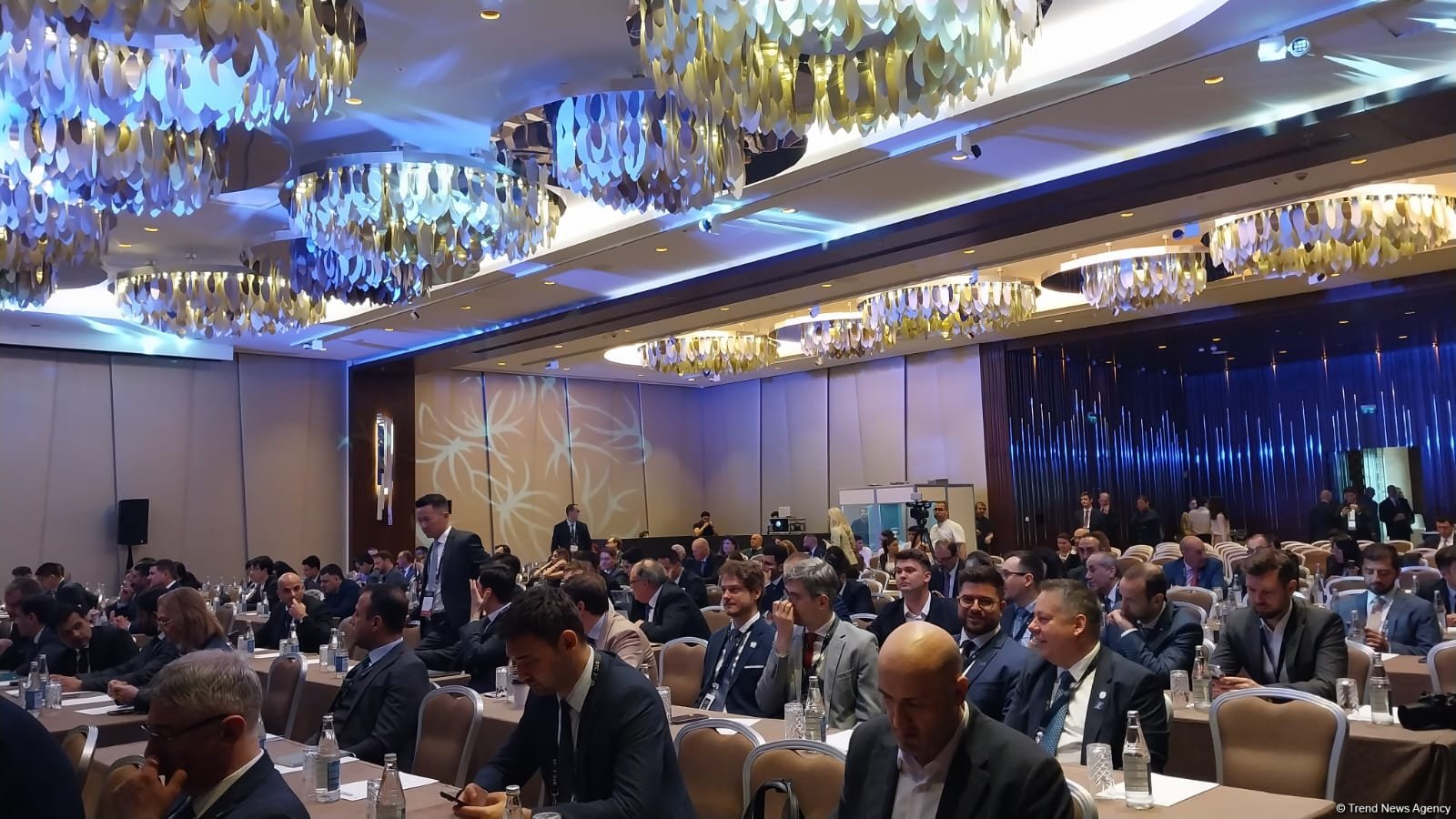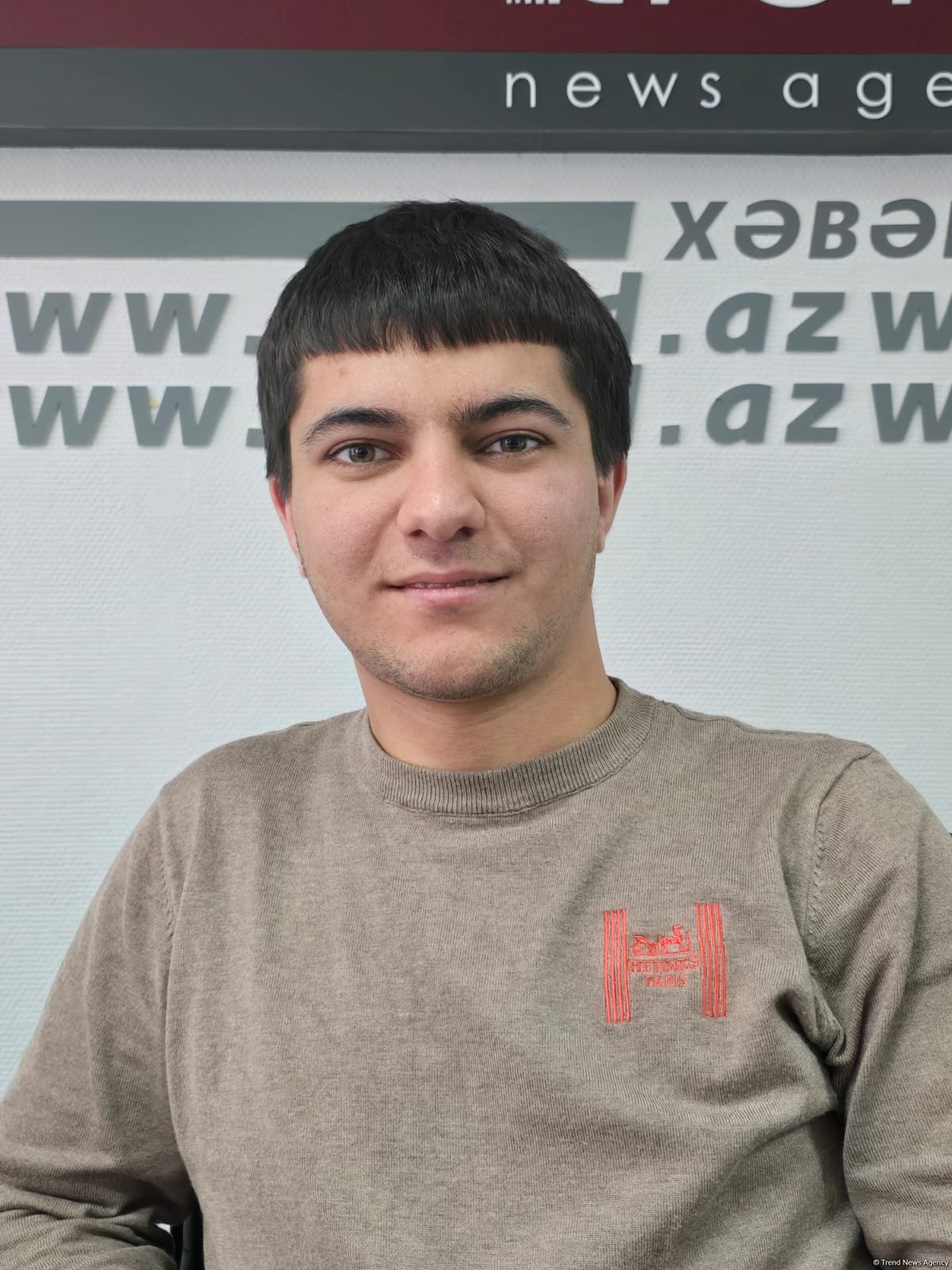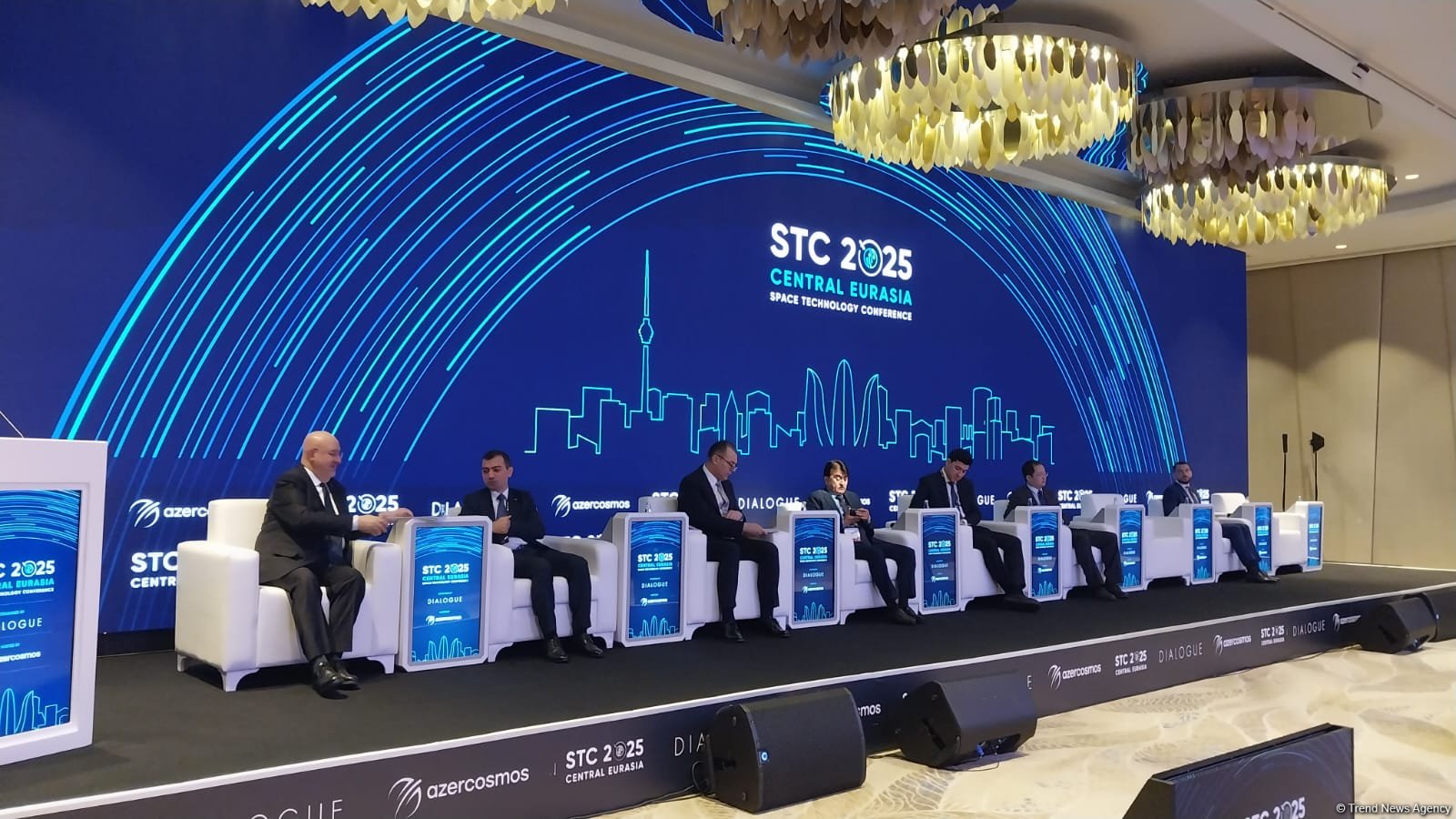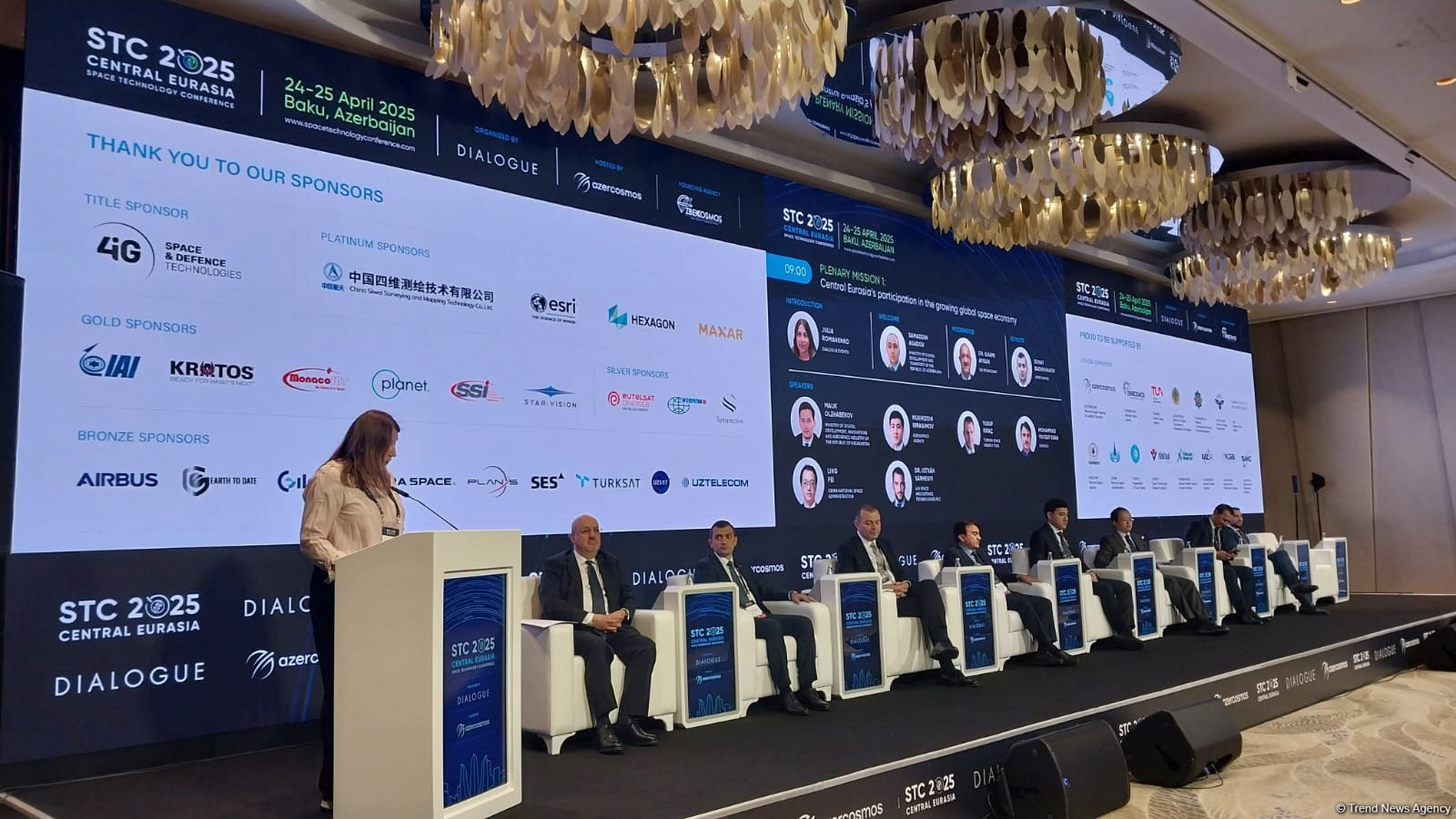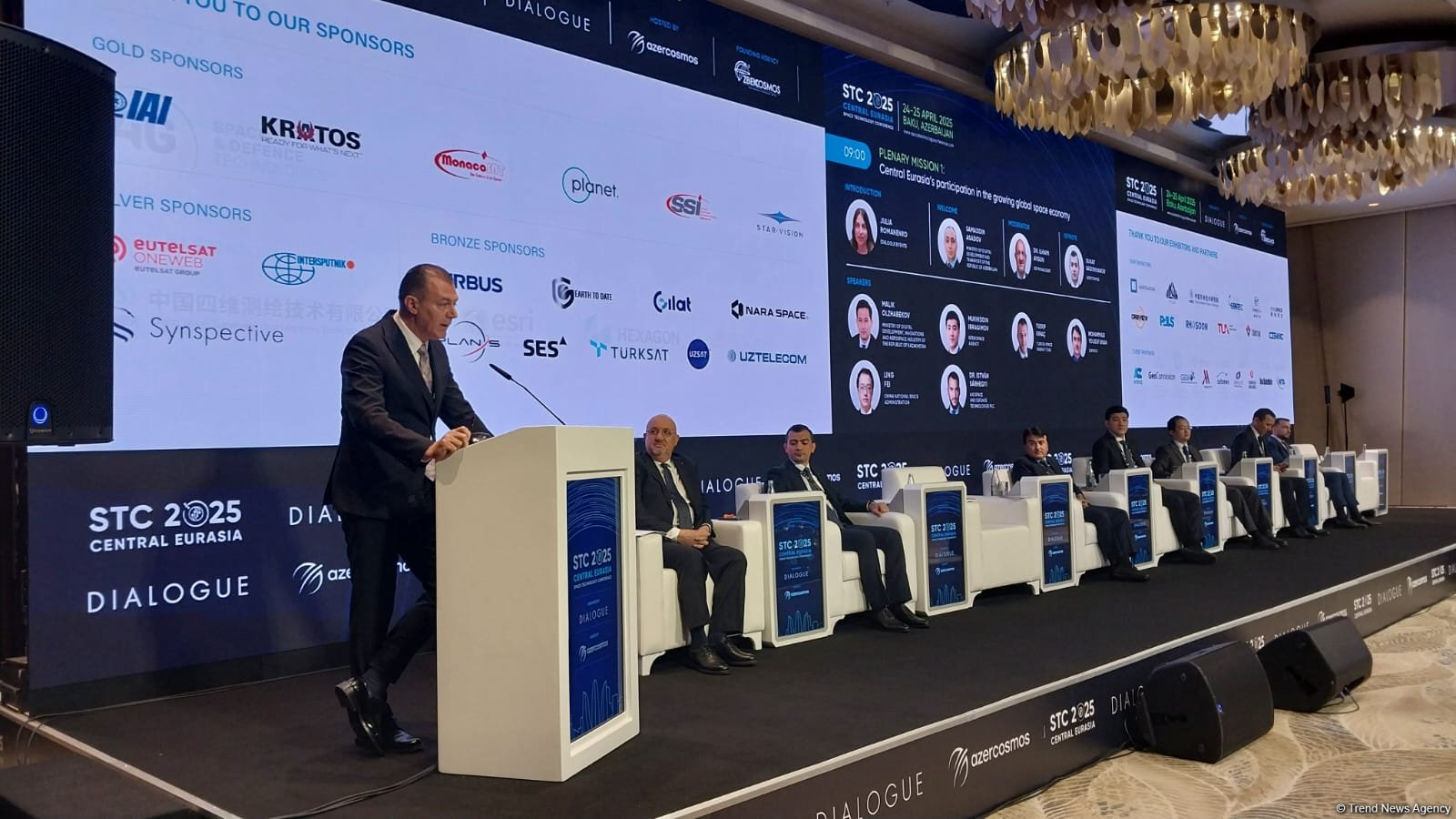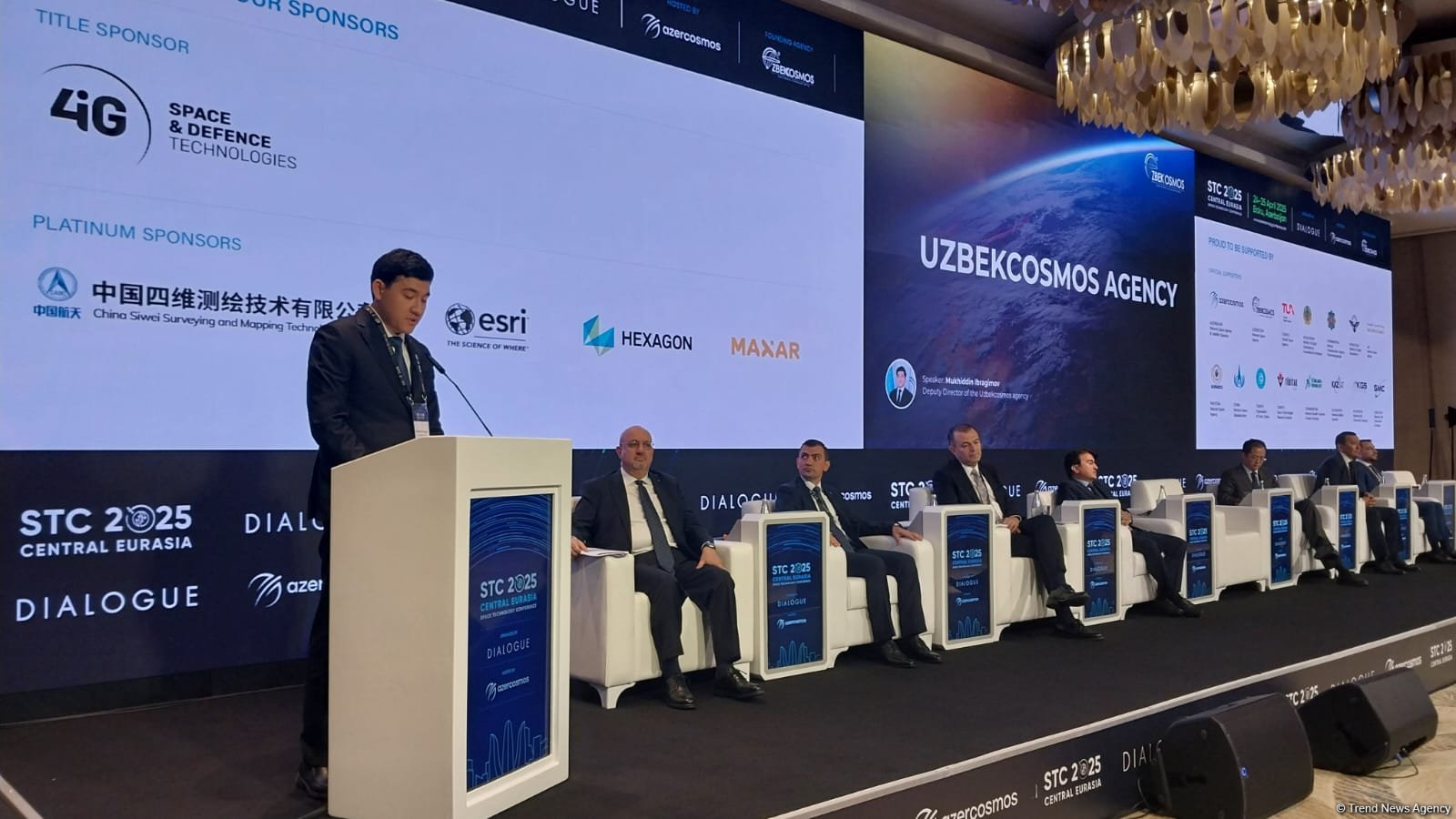BAKU, Azerbaijan, April 24. The first day of the Space Technology Conference (STC2025) wraps up in Azerbaijan's Baku, Trend reports.
This prestigious two-day event is being hosted by the Space Agency of the Republic of Azerbaijan (Azercosmos).
Throughout the conference, participants will address a range of pressing topics such as “Earth Observation for Sustainable Regional Development,” “Connectivity in Central Eurasia: The Role of Satellite Communications,” “The Latest Technologies Driving Innovation & Investment in the Space Industry,” “Small-Scale Satellites,” “Coordinating International Space Activities for Sustainable Development,” and “Satellite Technologies for Regional Challenges.”
The conference has brought together over four hundred participants representing one hundred and twelve organizations from thirty-five countries. Representatives from the Middle East, Europe, Asia, North and South America, and Africa are attending the event.
A day prior to the conference, on April 23, the heads of space agencies from the member states of the Organization of Turkic States — Türkiye, Kyrgyzstan, Uzbekistan, and Kazakhstan, as well as observer states Hungary and Turkmenistan, held their latest meeting.
Speaking at the Space Technology Conference (STC2025) held in Baku today, Acting Chairman of the Board of Azerkosmos, Dunay Badirkhanov, said that Azercosmos (Space Agency of the Republic of Azerbaijan) is preparing to launch a new generation of satellite systems.
“These next-generation satellite systems will feature enhanced capabilities in high-precision Earth observation, next-generation telecommunications services, and regional connectivity. We are also exploring the potential for new international missions, including joint initiatives with our partners in Türkiye and other countries,” he said.
In turn, the President and CEO of SSI-Monaco (Space Systems International-Monaco), Ilhami Aygun, noted at the meeting that Central Eurasia is rapidly becoming a key player in the advancement of satellite technologies.
"Satellite communication can help nations strengthen their positions, overcome digital inequality, and stimulate socio-economic development in the region. We live in a time of transformation, where space is no longer the final frontier but a vital component of economic growth, digital infrastructure, and geopolitical influence. Central Eurasia is not merely a participant but a driving force in this global system—investing in critical infrastructure and promoting intergovernmental and public-private cooperation," he said.
Furthermore, the Deputy Minister of Digital Development and Transport, Sameddin Asadov, emphasized that Azerbaijan has made significant progress in the development of information and communication technologies in recent years.
Asadov announced the successful completion of the "Online Azerbaijan" project, implemented through a public-private partnership model.
"The entire country is now covered with stable broadband internet. Over the past few years, the number of households with access to fixed high-speed broadband internet has increased manyfold. This development has also been reflected in international rankings on infrastructure progress.
Azerbaijan’s cybersecurity index has shown notable improvement in the Global Cybersecurity Index published by the International Telecommunication Union [ITU]. Our country scored 94 points out of a possible 100, positioning us among the top-ranked nations globally.
We place special focus on cultivating talent across the technology spectrum and have achieved substantial results in building professional capacity in the ICT sector.
Over the past few years, 10,000 ICT specialists have graduated under the National Scholarship Program, ensuring a workforce that meets the needs of the labor market. Today, these professionals play a key role in the advancement of ICT in our country'' he noted.
Speaking at the meeting, Malik Olzhabekov, the Deputy Minister of Digital Development, Innovation, and Aerospace Industry of Kazakhstan, stressed that I am delighted with the progress made by Azerbaijan and our other partner countries in space endeavors.
“We are collaborating with several companies in this field. Recently, we met with a company in Tashkent, which is now a major partner for Kazakhstan. I won’t mention them for free, but it’s worth noting. At a recent event in Ankara, we also found another company from Eastern Europe, and we are now working with them,” he said.
The head of the Turkish Space Agency, Yusuf Kırac, noted that as part of its National Space Program, Türkiye aims to achieve a hard landing on the Moon by the end of 2026.
Kırac emphasized that Türkiye's National Space Program is a roadmap with realistic and competitive objectives, outlining the strategy, goals, and projects for the country's space policy. It takes into account both global trends and the country’s internal capabilities.
The day before the conference - April 23 - a regular meeting of the heads of the space agencies of Türkiye, Kyrgyzstan, Uzbekistan, Kazakhstan, and the observer members of the Organization of Turkic States - Hungary and Turkmenistan - was held.
The conference will continue tomorrow.

